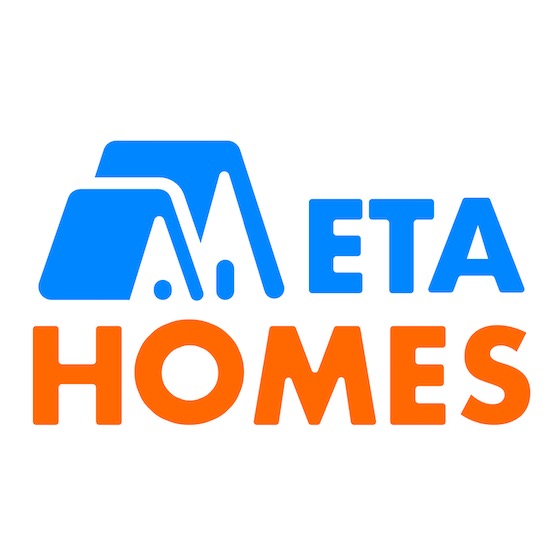Moving to Dubai and searching for the perfect place to call home can be an exciting yet overwhelming experience. While the city boasts a diverse range of properties, understanding the specific requirements and associated costs is crucial for a smooth transition.
It’s essential to determine your budget and familiarize yourself with the unique payment method in Dubai. Unlike most places, rent is typically paid upfront for the entire contract term using post-dated cheques. The number of cheques can vary between 1 and 12, with fewer cheques often translating to slightly better deals.
Furthermore, ensure you have all the necessary documents readily available, including copies of your passport, resident visa (if issued), Emirates ID (both sides), and a checkbook.
Beyond the monthly rent, several additional costs come into play when renting in Dubai. Here’s a breakdown of the key ones:
-
Ejari fees: This mandatory registration fee of AED 220 ensures your tenancy is officially documented.
-
Security deposit: Landlords typically require a security deposit ranging from 5% to 10% of the annual rent, which is refundable upon lease termination, subject to fulfilling all tenancy obligations.
-
Moving fees: Costs vary depending on the size and distance of your move, but factor this expense into your budget.
-
Agency fee: If you choose to work with a real estate agent, expect to pay a fee ranging from 5% to 8% of the first year’s rent. This fee covers their services in finding suitable properties, facilitating negotiations, and guiding you through the legal aspects of the tenancy agreement.
-
DEWA fees: Dubai Electricity and Water Authority (DEWA) requires a non-refundable connection fee of AED 130 and a refundable deposit (AED 2,000 for apartments and AED 4,000 for villas) to activate utilities in your new home.
Finding Your Ideal Home:
Finding the right property goes beyond just aesthetics; it’s about aligning with your lifestyle preferences. Consider factors like the desired community, property type (apartment, villa, etc.), location (proximity to work, amenities, etc.), and connectivity (public transport access).
Working with an experienced real estate agent can significantly streamline the process. They can help you understand your budget constraints, identify properties that meet your needs, and navigate the legal aspects of tenancy agreements. Additionally, a reputable agent will ensure the landlord has been vetted, offering peace of mind and valuable insights into local tenancy laws and procedures.
Remember to read online reviews and inquire about property management. While some landlords manage their properties directly, opting for a property managed by a reputable professional can be beneficial, especially when dealing with future maintenance issues.
Exploring Properties and Avoiding Pitfalls:
Once you have a shortlist of potential properties, schedule viewings with your agent. They will help you understand the specific features and drawbacks of each option, ensuring you make an informed decision.
It’s important to avoid viewing the same property with multiple brokers simultaneously. This practice can create an artificial sense of high demand, potentially pushing up the rental price.
If time constraints limit your ability to physically visit properties, platforms like Metahomes offer virtual tours in VR format, allowing you to experience spaces remotely.
Negotiating the Lease and Signing the Contract:
Once you identify the perfect home, the next step is initiating an offer. This stage involves a negotiation process facilitated by your agent, bringing together both the tenant and the landlord. During negotiations, you’ll be addressing key conditions such as rental price, the number of cheques, contract start date and duration, and the deposit amount. Additional terms may include considerations for decoration, pets, furnishing, and garden use. It’s worth noting that landlords may be open to reducing the total rental amount if you opt for a lesser number of cheques, providing flexibility in your payment structure.
Upon reaching an agreement, the next crucial step is to formalize the terms in the tenancy contract. It’s imperative that this contract fully complies with Dubai’s tenancy laws to ensure its validity. A 5% security deposit is standard for unfurnished properties, while furnished properties typically require a 10% deposit. This stage underscores the importance of having a RERA registered agent to guide you through legal intricacies.
Signing the Contracts:
With mutually agreed-upon terms, both parties proceed to sign the tenancy contracts. This signifies a commitment to the terms outlined in the agreement. At this juncture, the tenant is required to hand over the rent cheques in accordance with the specified terms, along with the agreed-upon agency commission. Keys and access cards are handed over once the cheques clear or the payment is made in cash. Both parties receive a copy of the signed contract for reference.
Note:
A crucial aspect to emphasize during this process is ensuring that the rental cheques are issued to the exact same landlord name as stated on the property’s title deed. This diligence is essential for accuracy and compliance. In cases where a Power of Attorney (POA) is involved, cheques can be issued to the holder of the POA, provided it is duly verified by the Dubai Court, and the POA clearly authorizes the recipient to receive payments under their name.
As an additional step to instill confidence in the transaction, it’s advisable to verify the authenticity of property title deeds through official channels such as the RERA website or the Dubai Rest App. This ensures a transparent and legally sound process throughout the tenancy agreement, promoting a secure and hassle-free experience for both parties involved.
Completing Essential Registrations After Renting a Property in Dubai
Successfully securing your dream rental in Dubai is just the first step. To finalize your move and ensure a smooth transition, two crucial registrations are mandatory: Ejari and DEWA (Dubai Electricity & Water Authority).
Ejari Registration:
Ejari, which translates to “My Rent” in Arabic, is an electronic rental registration system implemented by the Dubai Land Department (DLD). Registering with Ejari is not only mandatory but also serves as official proof of your tenancy, essential for various purposes like visa renewals, school enrollments, and utility connections.
To complete Ejari registration, you’ll need to gather the following documents:
-
Original tenancy contract: This document outlines the agreed-upon terms of your lease with the landlord, including rental amount, duration, and any special clauses.
-
Title deed: This document proves ownership of the property and is usually provided by the landlord.
-
Copies of passports (tenant and landlord): Ensure these copies are clear and valid.
-
Copies of Emirates IDs (tenant and landlord): This identification document is crucial for verification purposes.
Once you have all the necessary documents, you can register online through the Ejari portal or visit a DLD service center. The registration process is usually straightforward and can be completed within a short timeframe. Remember to retain a copy of your Ejari certificate for future reference, as it will be required for various services throughout your tenancy.
DEWA Connection:
Next, connecting utilities like electricity and water is essential to ensure a comfortable and functional living space in your new home. To activate your DEWA account, you’ll need to submit the following documents:
-
DEWA number: This unique identification number is typically located on the property’s side entrance or meter box.
-
Copies of passports (tenant and landlord): Similar to the Ejari registration process.
-
DEWA form: This form can be downloaded from the DEWA website or obtained from a DEWA service center.
-
Title deed: Required for verification purposes.
-
Setup fee: A one-time fee of AED 130 is applicable for account activation.
-
Refundable deposit: A refundable security deposit is required, with the amount varying depending on the property type (AED 2,000 for apartments and AED 4,000 for villas).
Once you’ve submitted the necessary documents and fees, DEWA will activate your account and connect your utilities within 24 hours. Keep in mind that you may be required to present the Ejari certificate as proof of tenancy during the DEWA registration process.
By completing both Ejari registration and DEWA connection, you’ll have successfully finalized the essential administrative procedures after renting a property in Dubai. Remember to retain copies of all relevant documents and familiarize yourself with your rights and responsibilities as a tenant to ensure a smooth and enjoyable tenancy experience.
As you prepare to move in, some developers may require you to obtain a No Objection Certificate (NOC) to facilitate the process. This certificate can be obtained by submitting documents including the Ejari Certificate, tenant’s passport and visa copies, copy of the tenancy contract, and a move-in form. Ensure you’re aware of any restrictions regarding the move-in date and time; some buildings may not permit moving in on Fridays, for example.
Before moving in, conduct a thorough inspection of the property. Take photos to document any existing issues and share them with your agent and landlord to avoid disputes later on. Address any maintenance issues promptly, and if necessary, request the property to be cleaned before your arrival. Remember, the property should be handed over to you in habitable condition, ensuring a smooth transition into your new home.


Leave a Reply